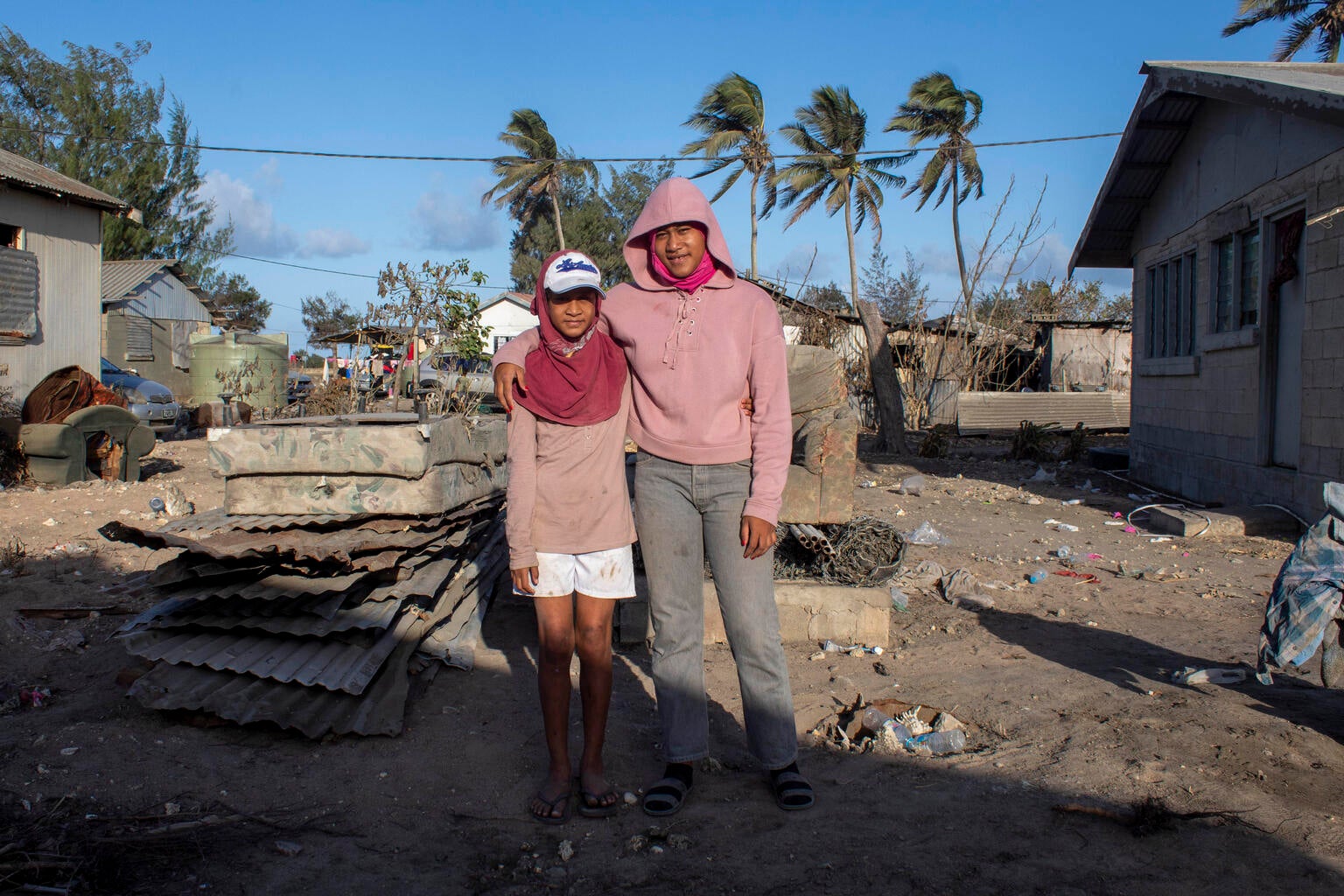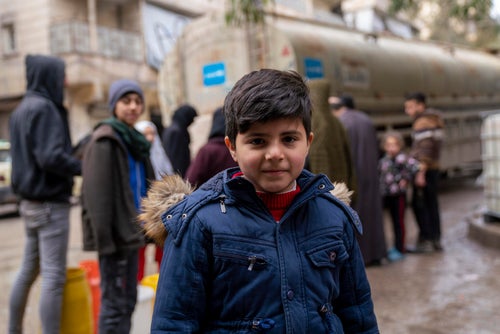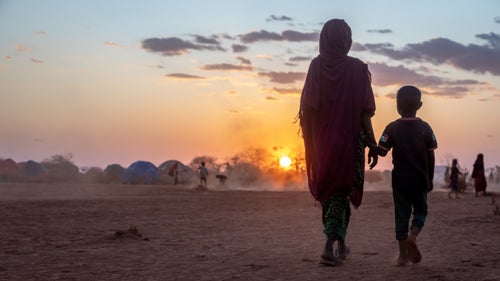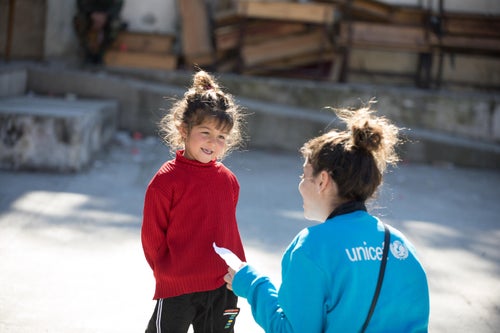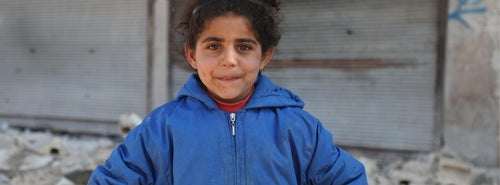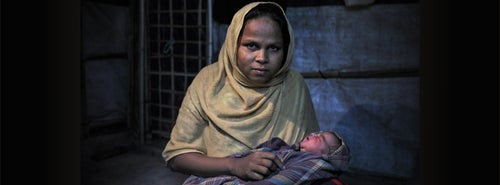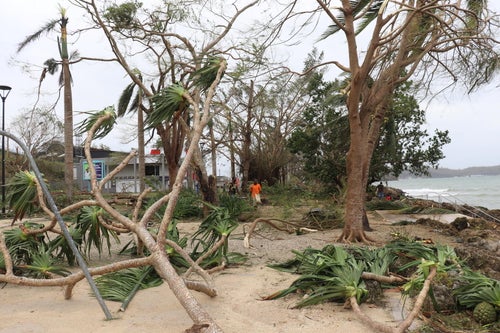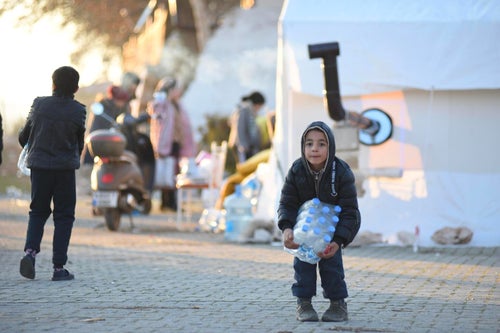UNICEF has been rushing to understand what supplies communities need
“I felt scared. I cried as I was running, and I was trying to hold onto my mom,” says 11-year-old Moui-He-Kelesi following the volcanic eruption.
As the family drove home, thick ash rained down on Tongatapu, the main island of Tonga. The Hunga Tonga Hunga Ha'apai underwater volcano erupted violently on 15 January and sent a plume of ash 20 kilometres above the volcano.
“We kept having to stop so my brother could wipe the ash off the windscreen,” says Moui-He-Kelesi. “When we returned home, our fence was destroyed, the dishes in the house were all broken, and there were no clothes because the tsunami had taken it all.”
The volcanic eruption, which is one of the biggest in Tonga in the last 30 years, triggered a 1.2 metre high tsunami that crashed ashore in coastal areas of Tonga’s capital, Nuku’alofa.
Ever since the volcanic eruption and tsunami hit Tonga, UNICEF has been rushing to understand what supplies communities need and deliver them – fast.
UNICEF has sent water, sanitation, and hygiene kits, water containers and buckets to support families, and a water field test kit to help the Government of Tonga undertake crucial water quality testing.
Donate Where the Need is Greatest
Families like Moui-He-Kelesi's need support to recover and rebuild. You can help.
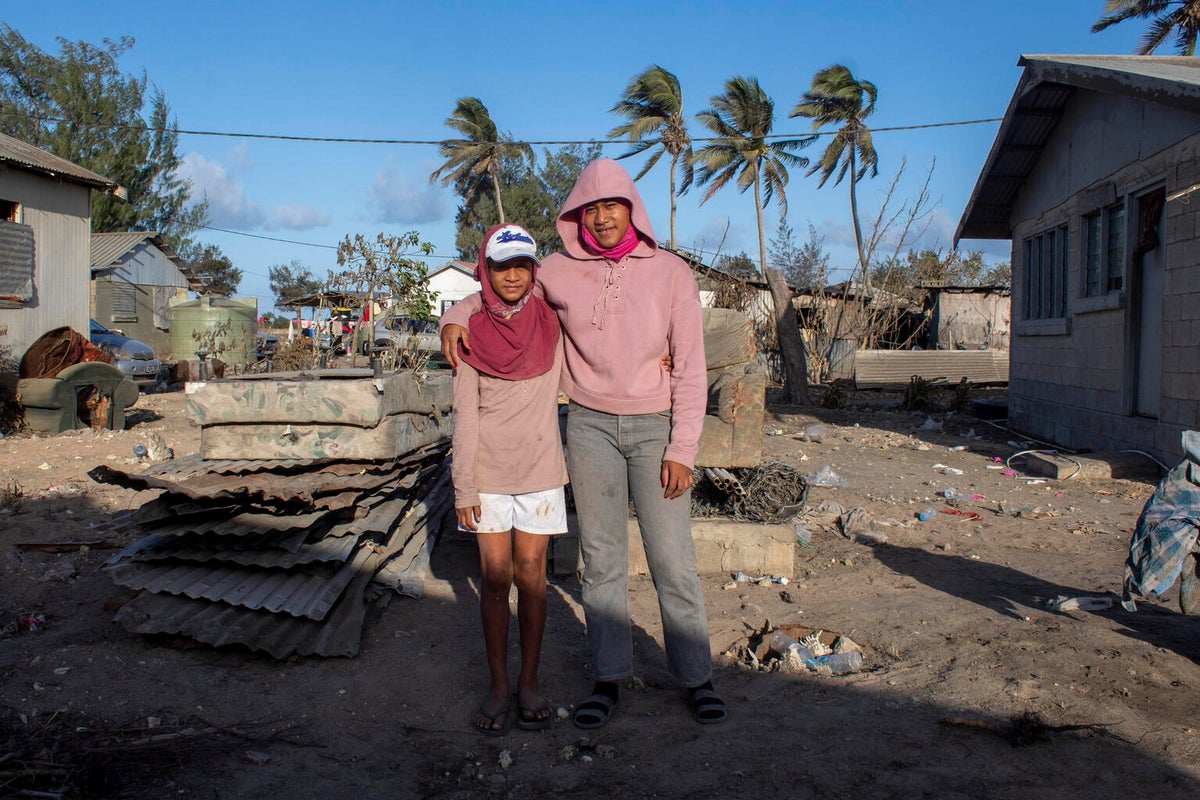
"The tsunami had taken it all."
Families run from tsunami
On the evening of Saturday 15 January, life was normal on the island of Tongatapu. Children were at home with their families, preparing for Sunday school or playing video games. That all changed in a moment.
The volcanic eruption that triggered a tsunami was hundreds of times more powerful than the atomic bomb the US dropped on Hiroshima during World War Two, says NASA.
Clouds darkened, waves reached as high as coconut trees and debris was strewn across villages. Families have no choice but to drop everything and run.
Few families in Tonga were left untouched by the destruction. An estimated 85,000 people, including 36,500 children, are affected. That’s 85 per cent of the population.
This is just the beginning of a long recovery. UNICEF will continue to support Tongan children and families to recover and rebuild their lives.
Help is on the way to Tonga
UNICEF teams acted fast to help. We shipped 44 tons of emergency supplies to Tonga from our warehouses in Brisbane and Fiji to reach the most vulnerable with:
- Water, sanitation and hygiene kits
- Recreational kits for children
- Jerry cans and buckets
- Water purification tablets
By making a donation today, you can help us reach Tongan children and their families with urgent life-saving support.
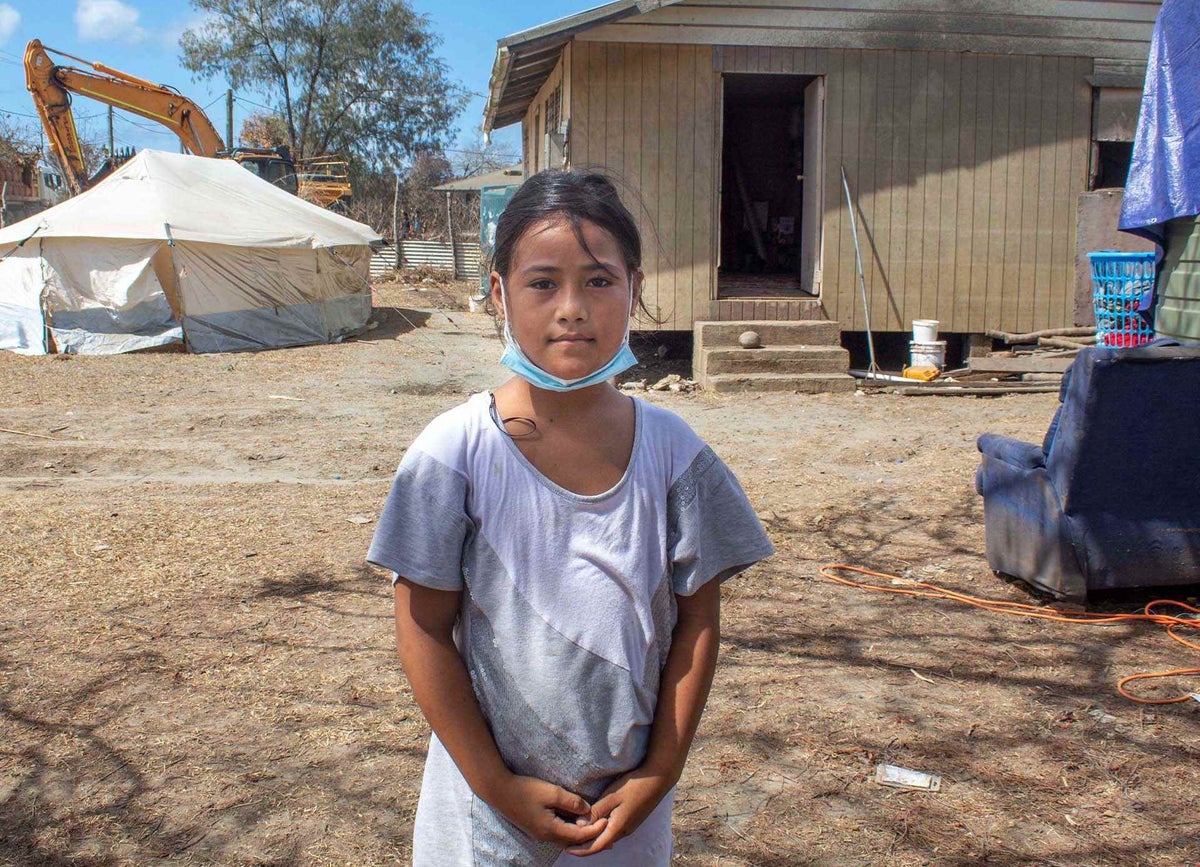
"We didn’t grab anything. We dropped everything and jumped in the car and drove off. And as we drove off the clouds darkened."
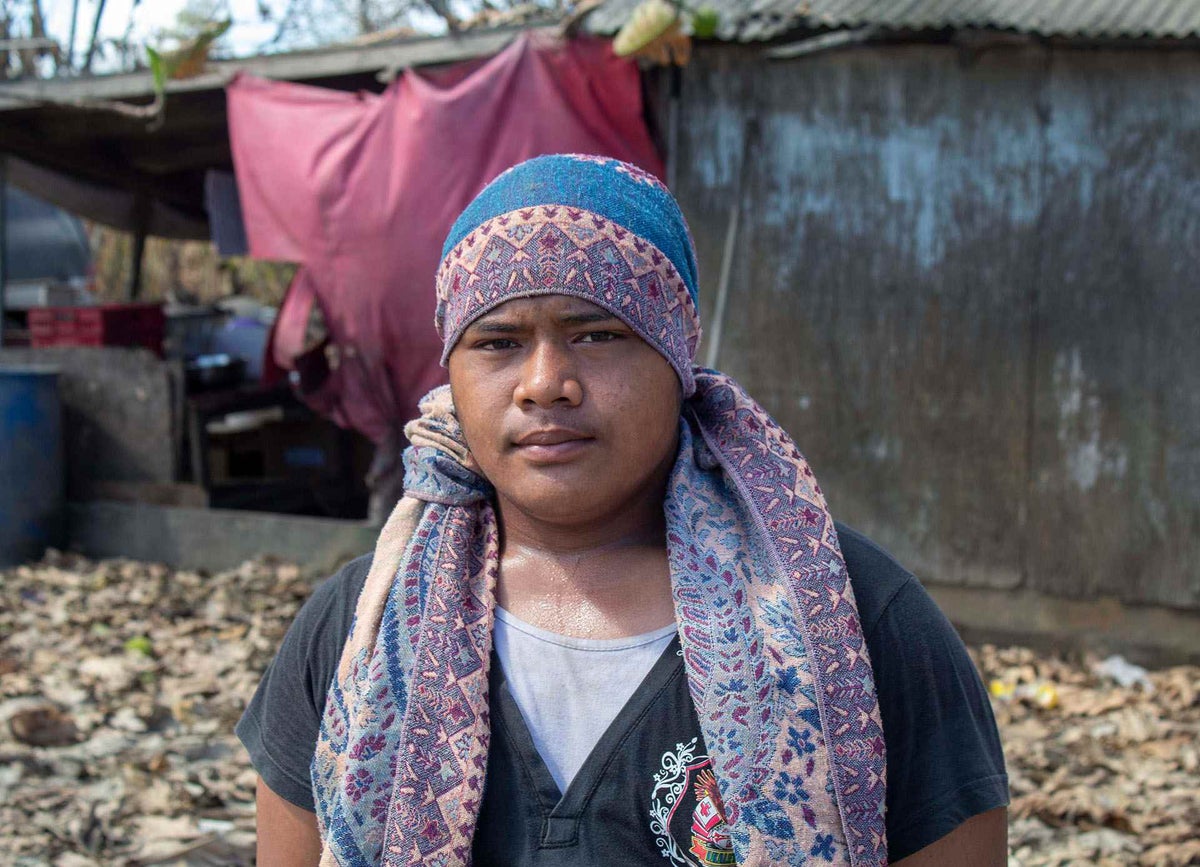
"I saw that the waves came and damaged the house. Big trees and branches were pushed inside the yard."
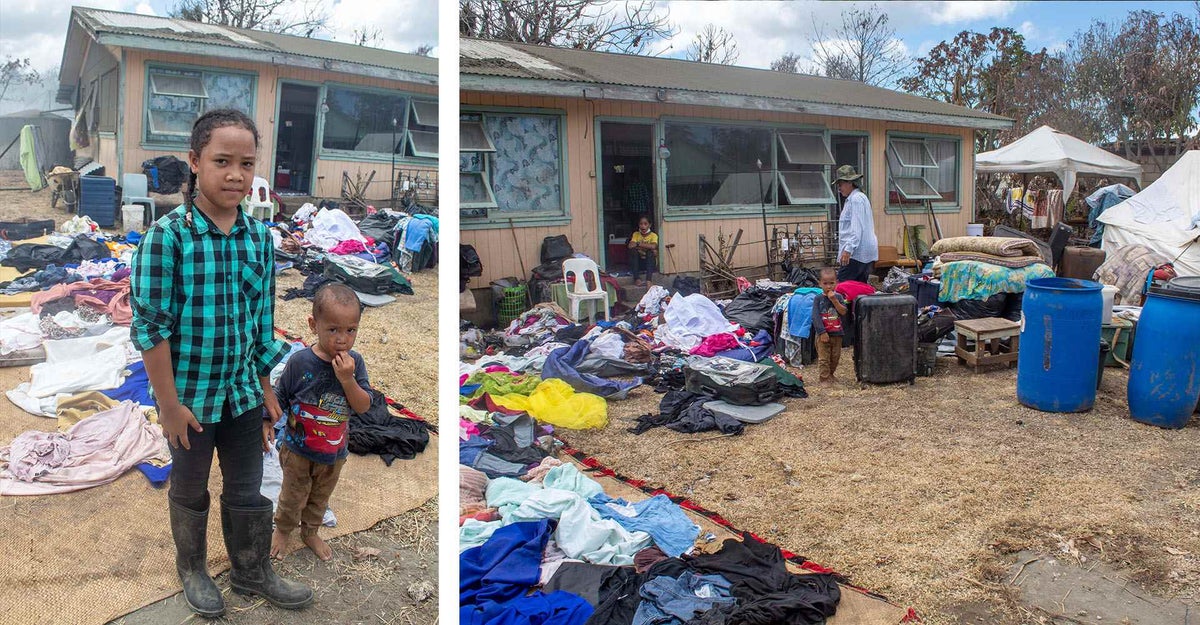
"I felt sad that the sea overflowed. While it was happening, I was scared, and I am still sad, but it is slowly getting better."
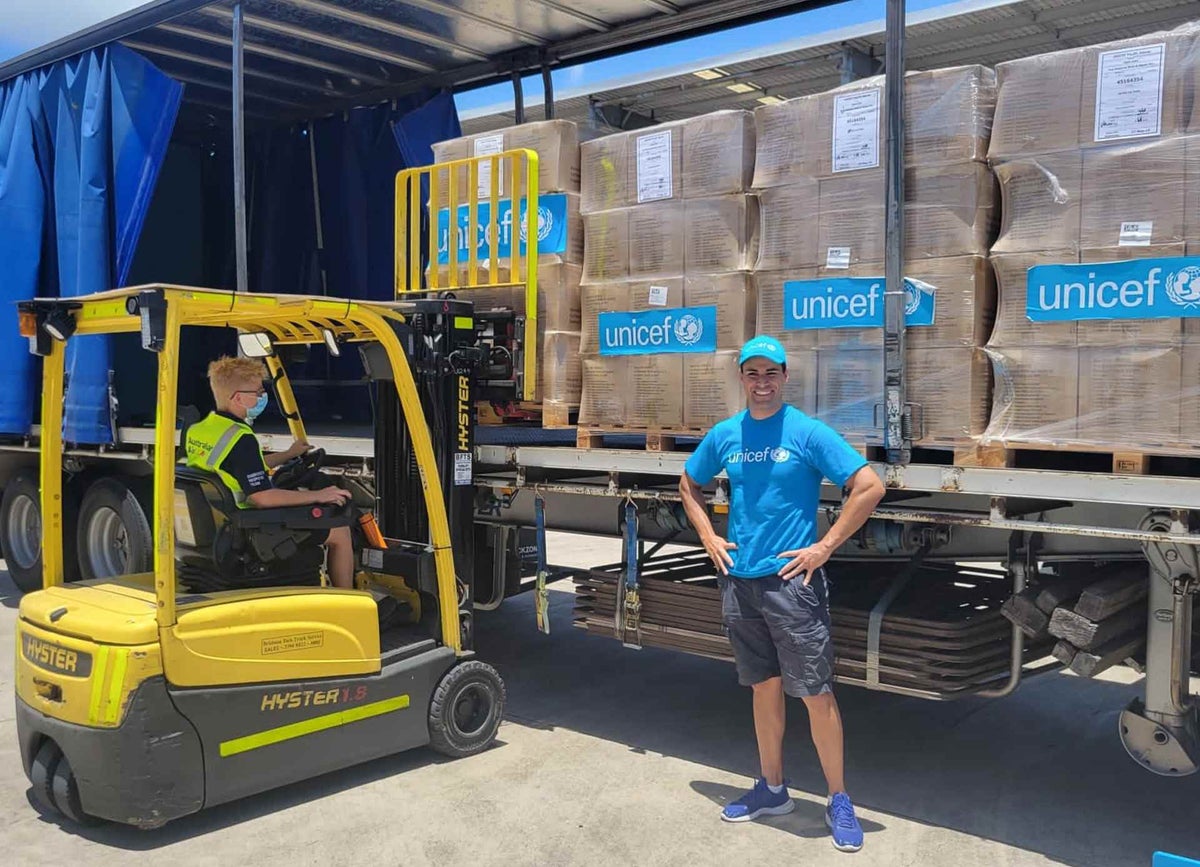
Volcanic ash covers Tonga
Thick ash has contaminated water, food supplies and the air quality. Flood waters have damaged infrastructure, homes and schools.
Access to clean water supply is an immediate priority. UNICEF Pacific Representative, Jonathan Veitch, says drinking water is sourced from ground water or rainwater.
The deadly eruption left Tonga cut off from the world for days. But as power and communication are slowly restored it’s clear now the destruction from the volcanic eruption and tsunami in Tonga is severe.
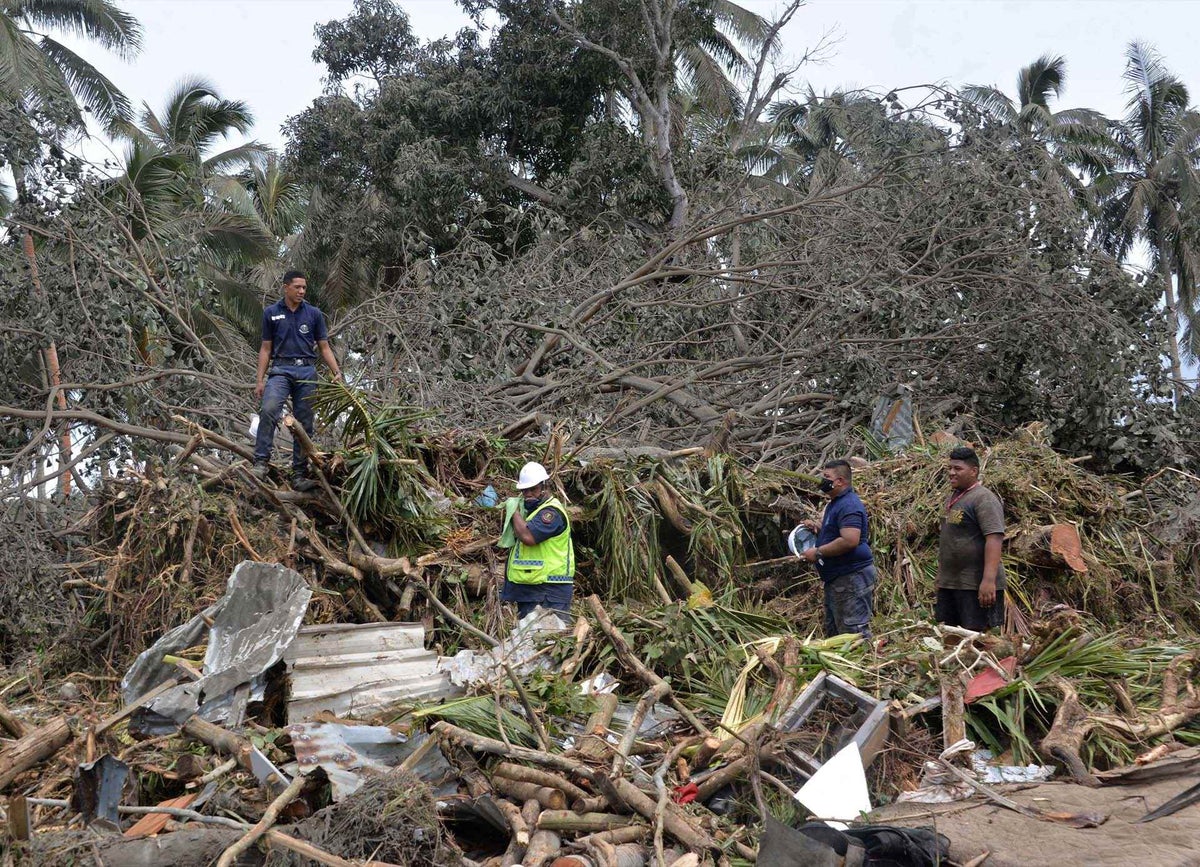
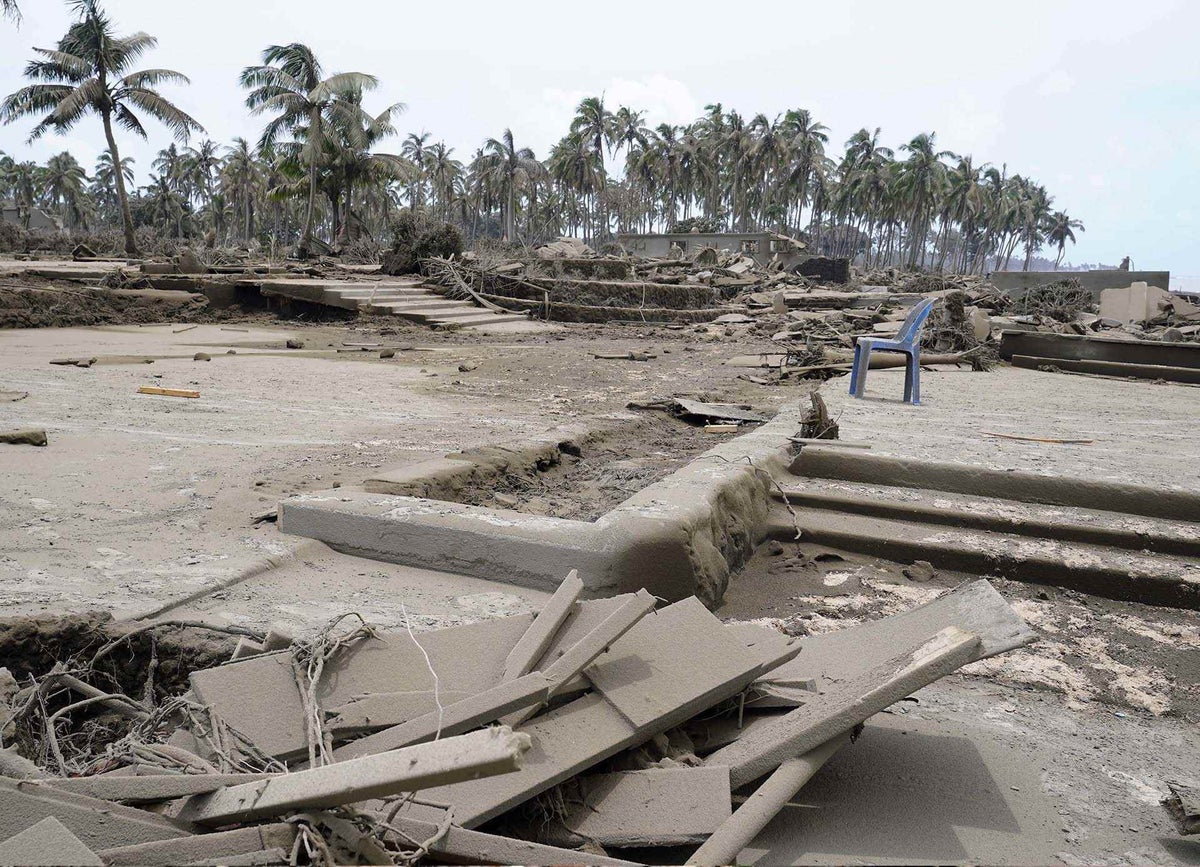
Thirty-three houses were completely destroyed, and 238 other houses suffered severe to moderate damage.
UNICEF is there before, during and after an emergency. We are deeply concerned for the safety and wellbeing of children. In the aftermath of a disaster, outbreaks of waterborne diseases are common, and for children in particular, the impacts of trauma can last for years if they don't get the support they need.
That’s why we’ve sent recreational kits which will help boost children’s mental and emotional health, while trained volunteers will provide psychological first aid. The kits contain supplies such as footballs and skipping ropes to help restore a sense of normalcy to children’s lives.
We’ll do everything we can to make sure children and families are safe
Donate Where the Need is Greatest
Help UNICEF to be there for children wherever the need is greatest, no matter what.
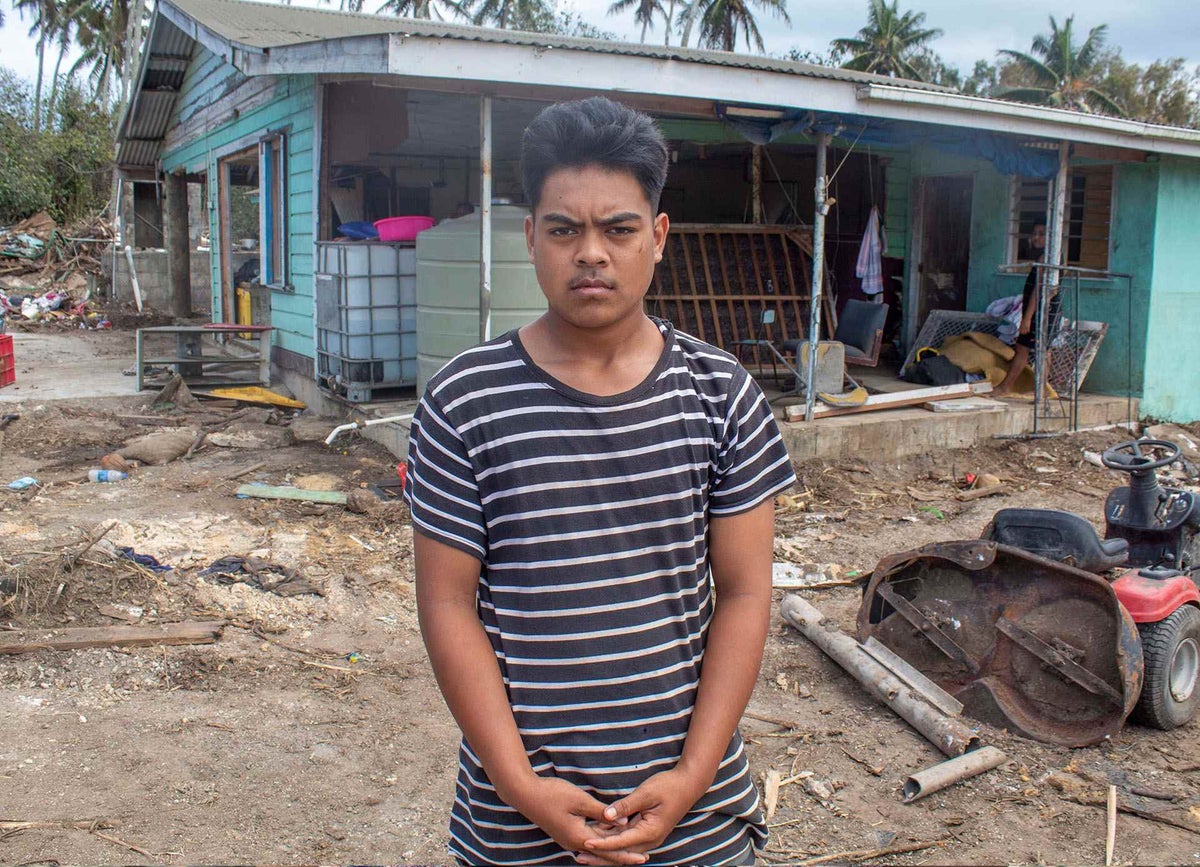
"I was worried and scared to hurry up and leave. We ran for safety."
However, in a devastating blow, the first recorded community transmissions of COVID-19 occurred in Tonga in late January, causing a country-wide lockdown as the Government of Tonga prioritises containing the spread of the virus.
In response, UNICEF has shipped personal protective equipment, COVID-19 tests and COVID-19 vaccines as part of the COVAX Facility to Tonga from our supply warehouses around the world. UNICEF will continue to work with the government and partners on the ground to reach families with the support they need.
Thanks to people like you, help is on the way. It’s just the beginning of a long recovery and we won’t stop until every child is safe.
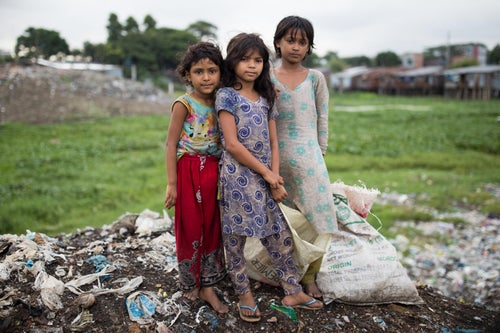
Donate Where the Need is Greatest
Help UNICEF to be there for children wherever the need is greatest, no matter what.
Related articles
Stay up-to-date on UNICEF's work in Australia and around the world



